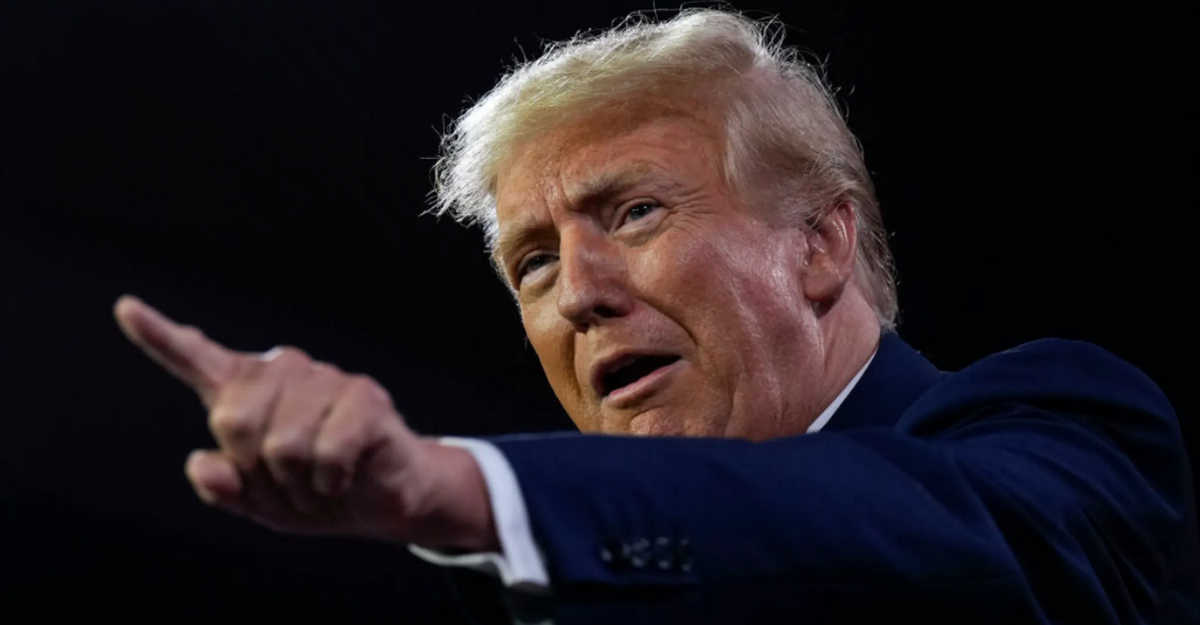14th amendment
Top stories
Conservative Scholars Argue Constitution Bars Trump From Running For President Again
William Baude and Michael Stokes Paulsen argue that Section Three of the 14th Amendment prohibits Donald Trump from running or serving as president again due to his role in the January 6th insurrection.
In an article set to be published in the University of Pennsylvania Law Review, two conservative law professors, William Baude of the University of Chicago and Michael Stokes Paulsen of the University of St. Thomas, argue that former President Donald Trump is ineligible to serve as president again due to a provision in the 14th Amendment of the United States Constitution.
The constitutional scholars, both active members of the conservative Federalist Society, spent over a year researching the topic to address what they see as "an important constitutional question."
The crux of their argument centers around Section Three of the 14th Amendment, which states that anyone who has "engaged in insurrection or rebellion against" the U.S. Constitution is barred from holding government office. The provision further specifies that this ban can only be lifted by a two-thirds vote in each House of Congress.
Baude and Paulsen contend that the events surrounding efforts to overturn the result of the 2020 presidential election, including the riot at the U.S. Capitol on January 6, 2021, fall within the scope of the 14th Amendment's language. They assert that Trump's actions constitute "aid or comfort" to those engaging in insurrection, as described in the amendment.
In an interview with the New York Times, Baude said:
“Donald Trump cannot be president — cannot run for president, cannot become president, cannot hold office — unless two-thirds of Congress decides to grant him amnesty for his conduct on Jan. 6.”
This interpretation, the professors argue, implies that Trump cannot be president again unless he is granted amnesty for his role in the events of January 6th by a two-thirds vote in Congress.
The legal scholars explore the historical context of the 14th Amendment, emphasizing that it was created in response to post-Civil War issues and was designed to address challenges arising from secession and rebellion.
They outlined four key points of Section Three:
"Section Three of the Fourteenth Amendment forbids holding office by former office holders who then participate in insurrection or rebellion." ...
"First, Section Three remains an enforceable part of the Constitution, not limited to the Civil War, and not effectively repealed by nineteenth century amnesty legislation."
"Second, Section Three is self-executing, operating as an immediate disqualification from office, without the need for additional action by Congress. It can and should be enforced by every official, state or federal, who judges qualifications."
"Third, to the extent of any conflict with prior constitutional rules, Section Three repeals, supersedes, or simply satisfies them. This includes the rules against bills of attainder or ex post facto laws, the Due Process Clause, and even the free speech principles of the First Amendment."
"Fourth, Section Three covers a broad range of conduct against the authority of the constitutional order, including many instances of indirect participation or support as “aid or comfort.”
They then conclude with the following:
"It covers a broad range of former offices, including the Presidency. And in particular, it disqualifies former President Donald Trump, and potentially many others, because of their participation in the attempted overthrow of the 2020 presidential election."
Social media buzzed with commentary at the prospect.
Baude and Paulsen's analysis carries significant implications, especially given Trump's standing as a potential front-runner for the 2024 Republican presidential nomination.
Their article lays the groundwork for potential legal challenges and lawsuits that could raise this "vital constitutional issue," and they suggest that their argument could eventually find its way to the Supreme Court for consideration.
Earlier this month, Special Counsel Jack Smith indicted Trump in connection with efforts to overturn his 2020 election loss.
Trump faces four felony counts, including conspiracy to defraud the United States and conspiracy to obstruct an official proceeding. The indictment further accuses him of attempting to exploit the events of January 6—the day a mob of his supporters attacked the United States Capitol on the false premise the election had been stolen—to further his quest to maintain power.
As discussions around Trump's political future continue to evolve, this legal perspective introduces a new dimension to the debate over his eligibility for office and the extent of consequences related to his actions leading up to and following the 2020 presidential election.
 SECONDNEXUS
SECONDNEXUS percolately
percolately georgetakei
georgetakei comicsands
comicsands George's Reads
George's Reads





